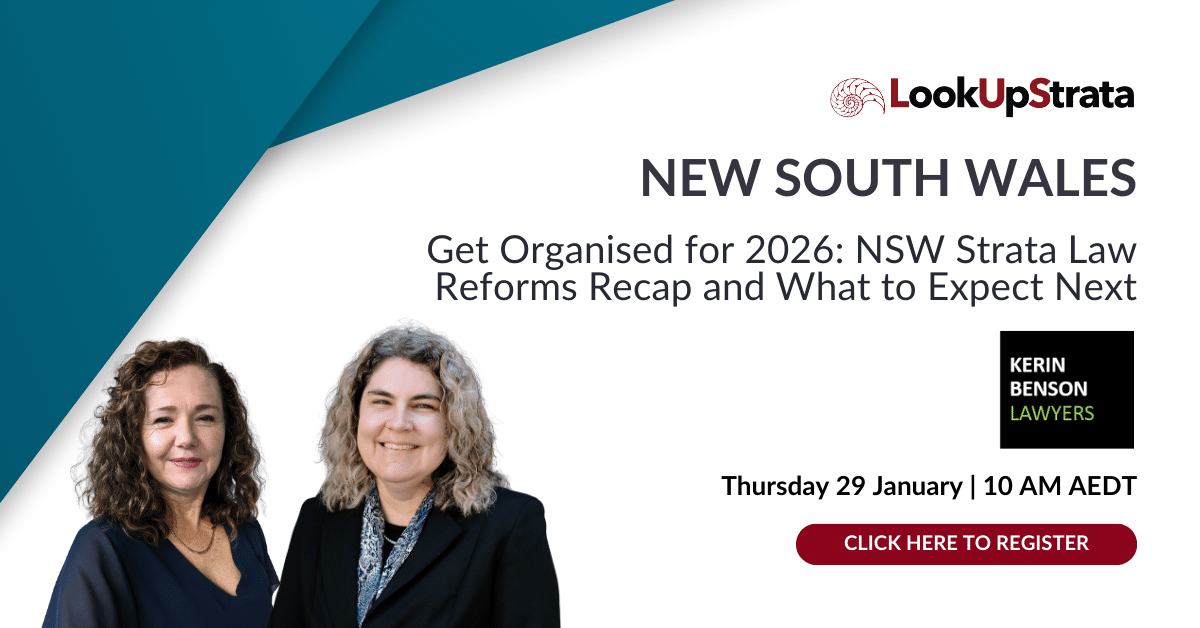This article is about the NSW Government committing to the continuation of key property and building industry policy reform projects ahead of the NSW state election.
The Strata Peak Body has issued the warning as part of their state election priorities. Other priorities include:
- the continuation and targeted improvement of key projects
- Electric vehicle integration and safety in strata buildings
- Reviewing the emergency service levy (ESL) that has seen insurance premiums increase by 18% per annum for strata residents
Strata Peak Body Strata Community Association (NSW) calls on both Dominic Perrottet and Chris Minns to commit to the continuation of key property and building industry policy reform projects ahead of the NSW state election.
SCA (NSW) President Stephen Brell, said the NSW strata sector was seeking assurance from the incoming government that ongoing, targeted programs and initiatives continue, in an effort to help restore consumer confidence in strata schemes and the property sector.
“SCA (NSW) has been working hand-in-glove with David Chandler and the Office of the Building Commissioner (OBC) on a number of key issues within the sector and we need to see that work continue with a renewed focus, commitment and investment by the incoming government,” said Mr Brell.
“The NSW residential apartment sector is at risk if it does not continue the work of the OBC to rectify building defects and strengthen consumer protections for the millions of NSW residents living in strata buildings.
“SCA (NSW) and its members strongly believe in the value and importance of the building and property sector reforms currently underway in NSW, and together we urge any future government to commit to the timely implementation of these critical, landmark, and necessary changes,” he said.
According to the survey of 1,400 strata managers conducted by SCA (NSW) and the OBC, more than one-third (39%) of new strata buildings have serious defects representing an average cost of approximately $331,829 per building.
“NSW leads the way in the trend of higher density living with apartments accounting for more than half of all new dwellings expected to be built by 2032,” added Brell.
“With more than 50% of the NSW population expected to live and work in strata schemes by 2040 it is vital that we have an industry that is trusted and accountable.”
Other key areas SCA (NSW) has identified ahead of the March 2023 election include the Emergency Services Levy (ESL), Electric Vehicle (EV) integration and safety in strata buildings.
The Emergency Services Levy (ESL) is a payment that helps fund certain emergency services in NSW. The ESL is an important issue because NSW is the only mainland state that funds its emergency services through a tax on insurance.
As the cost of living increases exponentially, strata owners are being burdened with an unfair share of the heavy lifting when it comes to funding emergency services by paying the ESL through a tax on insurance, which has seen premiums increase by 18% per annum.
“Emergency services are a critical part of our community but they must be funded in a way that doesn’t unfairly punish strata residents who are required to purchase compulsory strata insurance,” said Mr Brell.
As NSW transitions to Electric Vehicles (EVs) and with one in five residents living in some form of strata-titled property, a considerable number of EVs will be occupying strata parking structures. As a result, SCA (NSW) is concerned with the safety implications that the rapid proliferation of EVs in strata will have.
It is known that the failure of EV battery cells may result in the emission of dangerous hazards, including difficult-to-extinguish fires, thermal runaway effects, toxic and flammable gases and vapours, and leaking of hazardous materials.
These effects are compounded when considering that strata parking may be in areas that are difficult for emergency services to access, like underground or high above-ground areas.
“While we welcomed the commitment of the Perrottet Government towards co-funding medium and large apartment buildings with EV charging in the 2022-23 state budget, we want to see a thorough investigation into the additional safety considerations and requirements ahead of the widespread integration of electric vehicles into strata homes,” said Mr Brell.
This post appears in Strata News #637.
Have a question or something to add to the article? Leave a comment below.
Read next:
- NSW: Court Widens People Liable for Building Defects!
- NSW: Dealing with apartment defects: a how-to guide for strata owners and buyers
Visit our Strata Building Defects OR NSW Strata Legislation
Looking for strata information concerning your state? For state-specific strata information, take a look here.
Are you not sure about some of the strata terms used in this article? Take a look at our NSW Strata Glossary to help with your understanding.
After a free PDF of this article? Log into your existing LookUpStrata Account to download the printable file. Not a member? Simple – join for free on our Registration page.


Leave a Reply